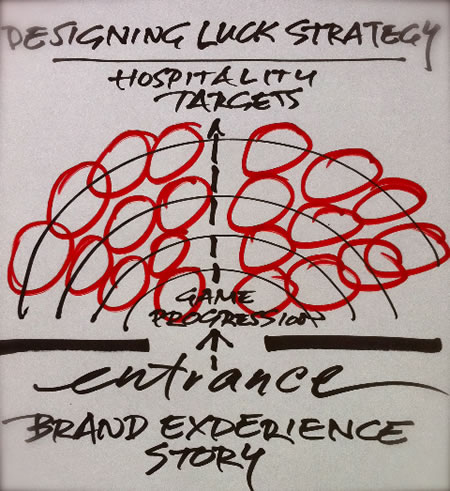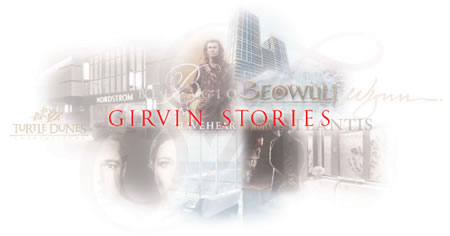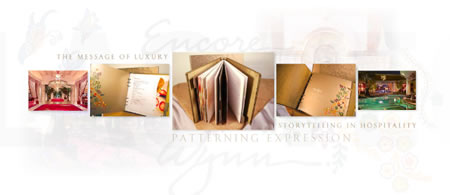
Mapping concepts of gaming procession and built design: exterior brand experience storytelling (what’s this place about?); entry into the gaming world; sequencing gaming technology (red circles) for luck perceptions; creating visible targets for more hospitality and experience places.
Casino guest procession and experience design — hospitality branding the concept of fortunate encounters.
I’ve been wondering about the concept of luck. What is it?
Girvin has worked as brand strategists and designers in the entertainment / hospitality arena for the last decade. It all started with a game — one game — designing a logo for a slot. That tiny proposition changed everything. Luck, had?
“Those who have succeeded at anything and don’t mention luck are kidding themselves.”
Larry King
Our work in entertainment crosses from the perceptions of gaming to simply how people are entertainment, especially when it comes to holistic experience and integrated brand development. We believe in the narrative memory, that brands are stories — micro or maximal — from screen to place, from sensation to textual.

We began small, then got more deeply linked to entertainment constructs. First, the small slot identity program, then other gaming concepts — digital, slot, place-making; and after that, progressively, we took over the brand development of dozens of shops and restaurants for Steve Wynn’s Bellagio.

From there, work expanded to other properties, MGM MIRAGE, Wynn’s other resorts, Ameristar, Boyd, Trump, Kerzner, others.

“Everything in life is luck.”
Donald Trump
But the work from that first starting point — moving forward — was never really about “gaming,” per se, again. It was about hospitality experience and concept development. Still, gaming represents the largest percentage of income for the industry (not for us) — but hospitality, food and beverage and other entertainment(s) represent another aspect of the whole gaming world. That’s where we live.
“Luck is believing you’re lucky.”
Tennessee Williams
Strategically, like any entertainment proposition, it’s about keeping the energy up. That energy, to our perceptions as well, has to do with the personal instincts of luck — if the vibe is up, then the instincts might play to winning good fortune. If the gaming / casino player is there, playing, everything else should be linked to keeping the experiencer in active play in the environment. Time stands still — it’s another world, inside and out, drawing into that sense of experiential fantasy is carefully thought through and continuously examined and updated. Linking one event and location to another proximal property — crossroad patterning — is a way of assuring the gamer continuing to play.
And it comes to the perception of luck — good fortune, internationally, is one thing in one environment and still another in a differing place. Gamers play on the presumption of winning potential. To that end, according to a friend in the industry, there have been massive shifts in strategy to support the gaming mentality. This isn’t new, but the tools and insights — watching the movements of the crowd, and key players — has become increasingly sophisticated.
“I am a great believer in luck, and I find the harder I work, the more I have of it.”
Thomas Jefferson
Tracking machines, gaming tables, locations and the concept of procession — crowds moving through environments can tune with precision the possibilities of gathering more relationships. The key to luck is perceiving the potential of winning — so the emerging tactic is to build a rippling wayfinding to key gaming assets that will string the moving masses into play.
“Luck is what happens when preparation meets opportunity.”
Seneca (1st century Roman philosopher)
The idea of using this kind of approach in other forms of experience design is common — and now, that perspective increases in focus in the entertainment placemaking business. But what of luck?
“I’ve been lucky. I’ll be lucky again.”
Bette Davis
First off, the word luck is of unknown origins, at least ultimately — beyond the 16th century Middle Dutch, spoken and written from the 1100s to the 1500s. From luc, which was a shortening of gheluc “happiness, good fortune,” of unknown origin. Related to Middle High German g(e)lücke, the German Glück “fortune, good luck.” Perhaps this word was first borrowed in English as a gambling term. To luck out “succeed through luck” makes a verb of it, American English colloquial, first attested 1954. Good luck as a salutation to one setting off to do something is from 1805. Fortune, the word, sets off thousands of years of legacy. From the lastest, backwards in time to the roots, from around 1300, “chance, luck as a force in human affairs,” from Old French then fortune (12th century), from the Latin fortuna, from fors (genitive fortis) “chance, luck,” from the Proto Indo European base *bhrtis-. Often personified as a goddess; her wheel betokens vicissitude.
“Luck affects everything; let your hook always be cast; in the stream where you least expect it, there will be a fish.”
Ovid (Roman Poet, 1st century, BCE)
The wheel of luck — the wheel of fortune — it’s interesting that the concept of the changing wheel is as ancient is it is. Still popular. There are experts on the concept of luck, one of them being Richard Wiseman – even researching the notion of fortune. Wiseman notes that his working “research explores why some people live charmed lives, and develops techniques that enable others to enhance their good fortune. The project began in 1994 and has involved hundreds of exceptionally lucky and unlucky people. These findings have been published in Prof Wiseman’s bestselling book “The Luck Factor.” Current work examines how these ideas can be applied in organisational and business settings. There are attitudinal settings to consider, according to the outcomes of his research.
Top “lucky” tips:
- Listen to your gut instincts – they are normally right
- Be open to new experiences and breaking your normal routine
- Spend a few moments each day remembering things that went well
- Visualise yourself being lucky before an important meeting or telephone call. Luck is very often a self-fulfilling prophecy
The concept of linking brand instinct (what would be the right conceptual positioning to frame this brand story?) to human instinctual reaction (what’s it feel like?) is something that we’re continuing to experiment with — story, message, play, vibe, visualizations, sound; it’s all there, all aligning — but what is the feeling that ties it all together in the experience of the present? Luck, it would appear, too, is all about instinct and reaction — luck would appear to happen to those that believe themselves to be lucky; that conditioning creates fertile ground.
For everyone involved…
T I M | Richland, Washington
–––––
Human Brand Experience | S t r a t e g i e s
https://www.girvin.com/subsites/humanbrands/
Added references:
Game design and environmental strategies
The psychology of casinos
Contemporary casino and gaming environment tactics
Physics, Psychology and the Casino Industry
the reels: http://www.youtube.com/user/GIRVIN888
girvin blogs:
http://blog.girvin.com/
https://tim.girvin.com/index.php
girvin profiles and communities:
TED: http://www.ted.com/index.php/profiles/view/id/825
Behance: http://www.behance.net/GIRVIN-Branding
Flickr: http://www.flickr.com/photos/tgirvin/
Google: http://www.google.com/profiles/timgirvin
LinkedIn: http://www.linkedin.com/in/timgirvin
Facebook: http://www.facebook.com/people/Tim-Girvin/644114347
Facebook Page: http://www.facebook.com/pages/Seattle-WA/GIRVIN/91069489624
Twitter: http://twitter.com/tgirvin